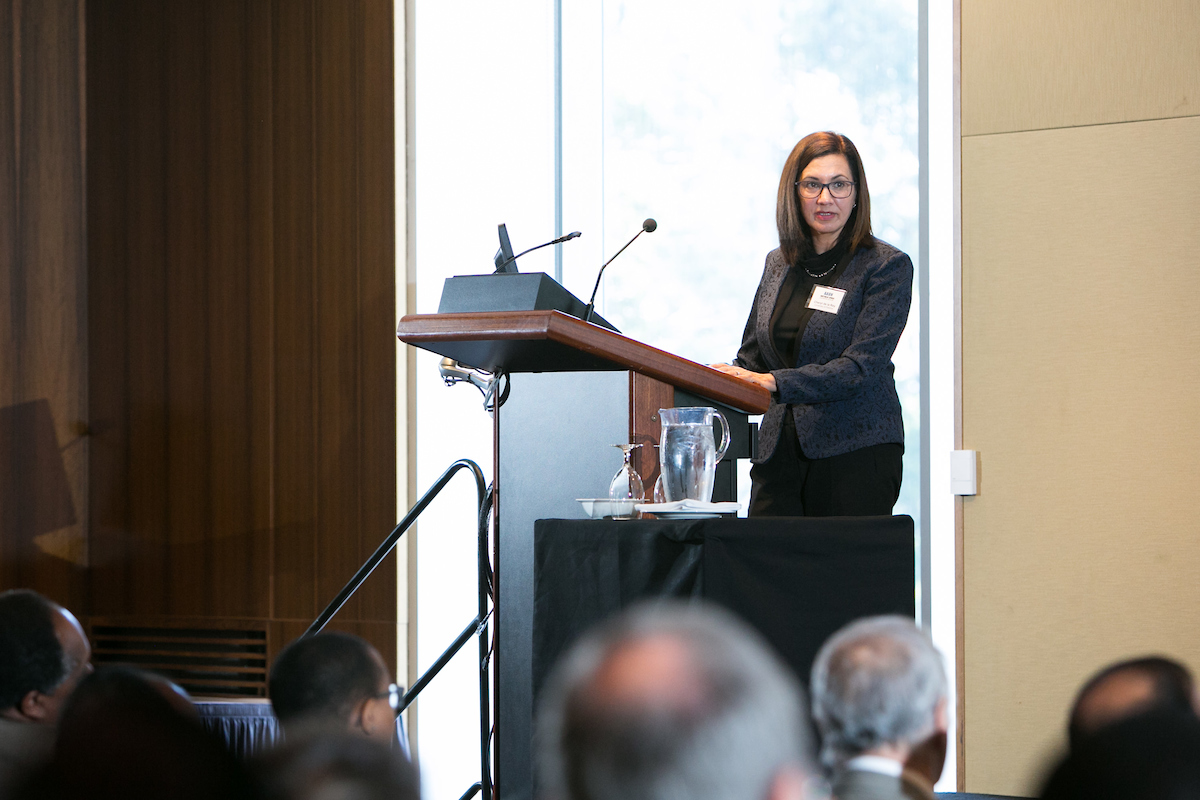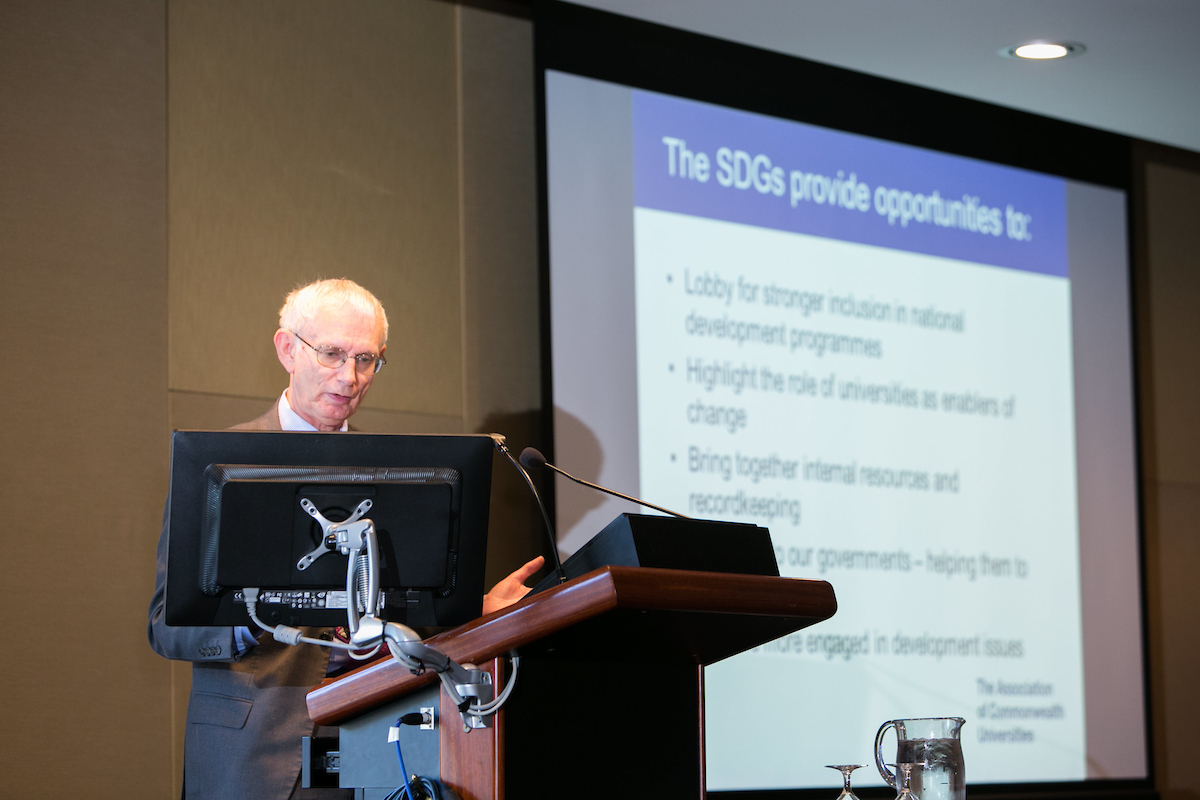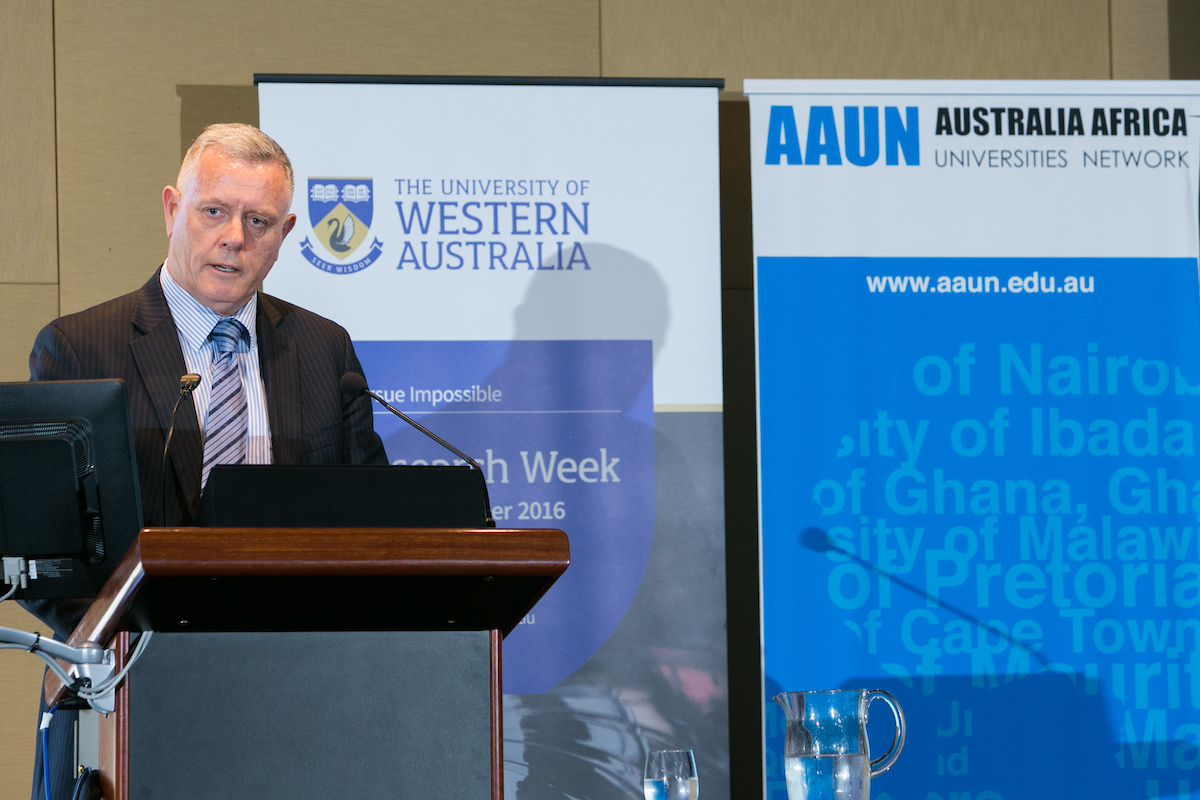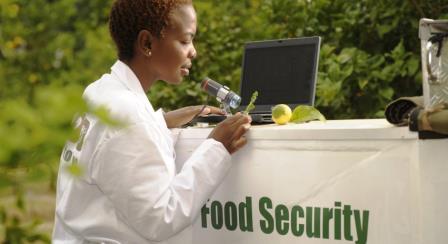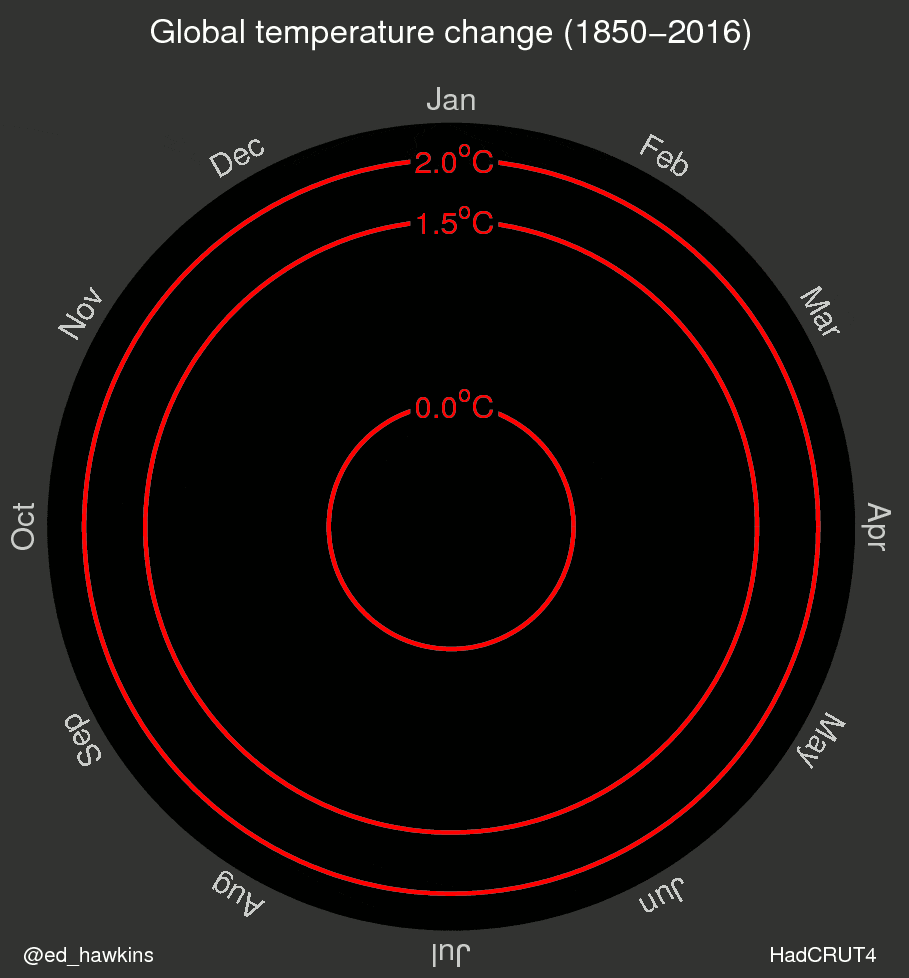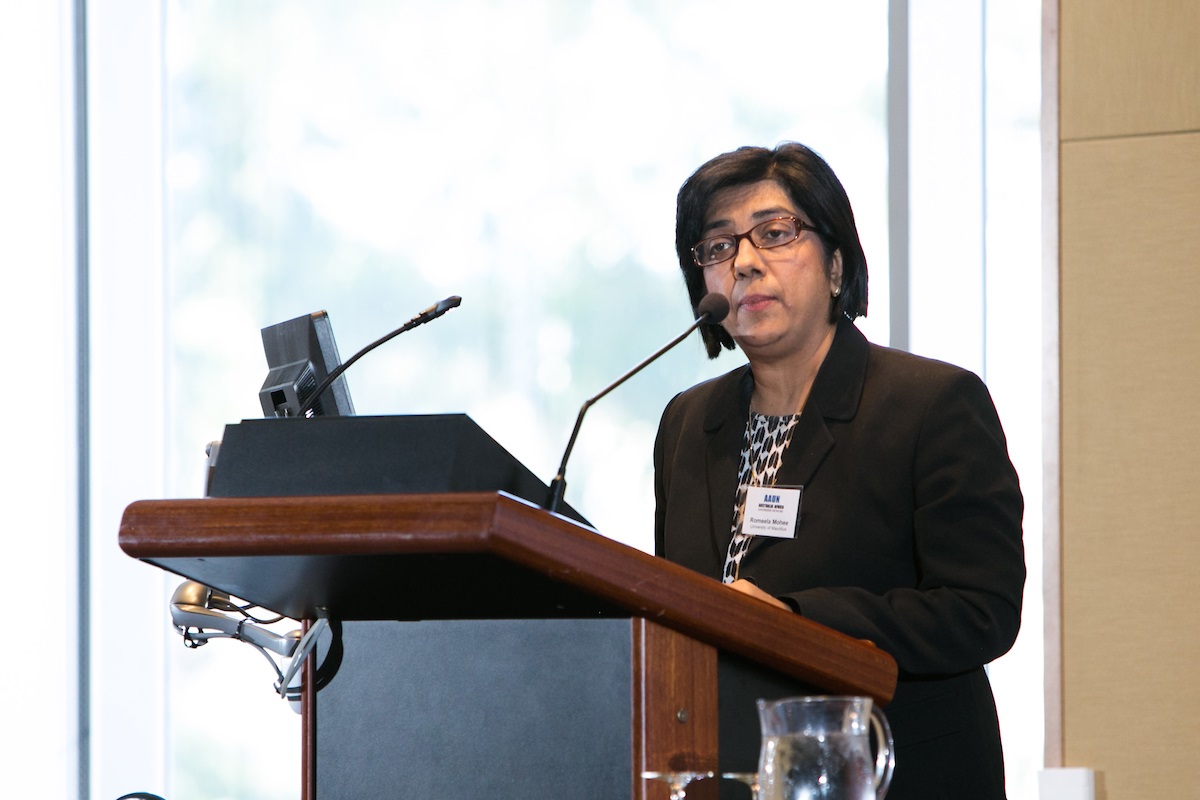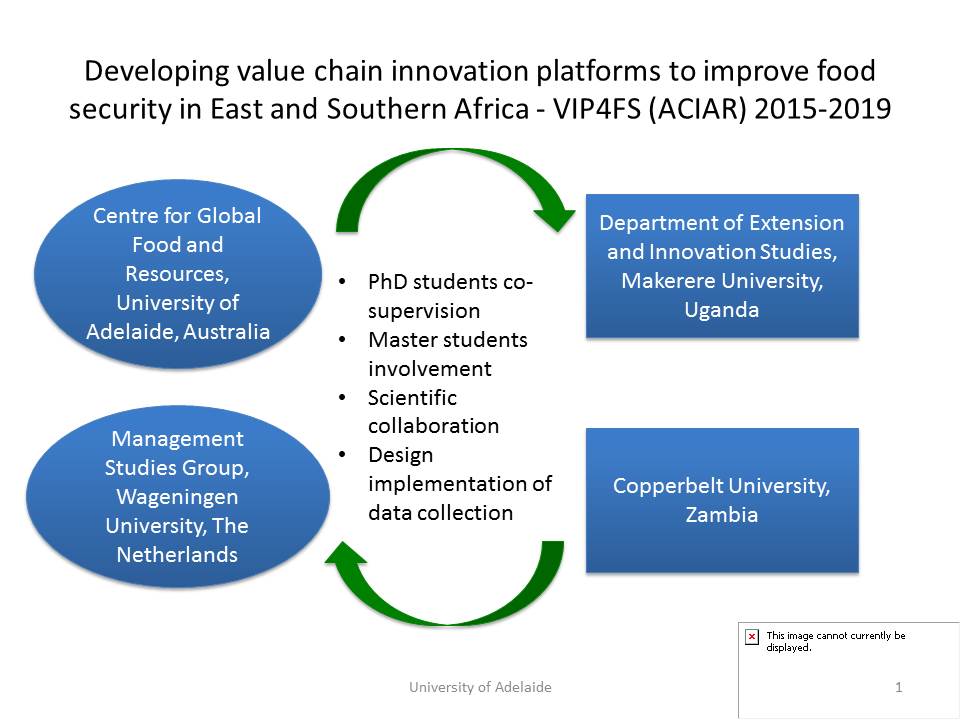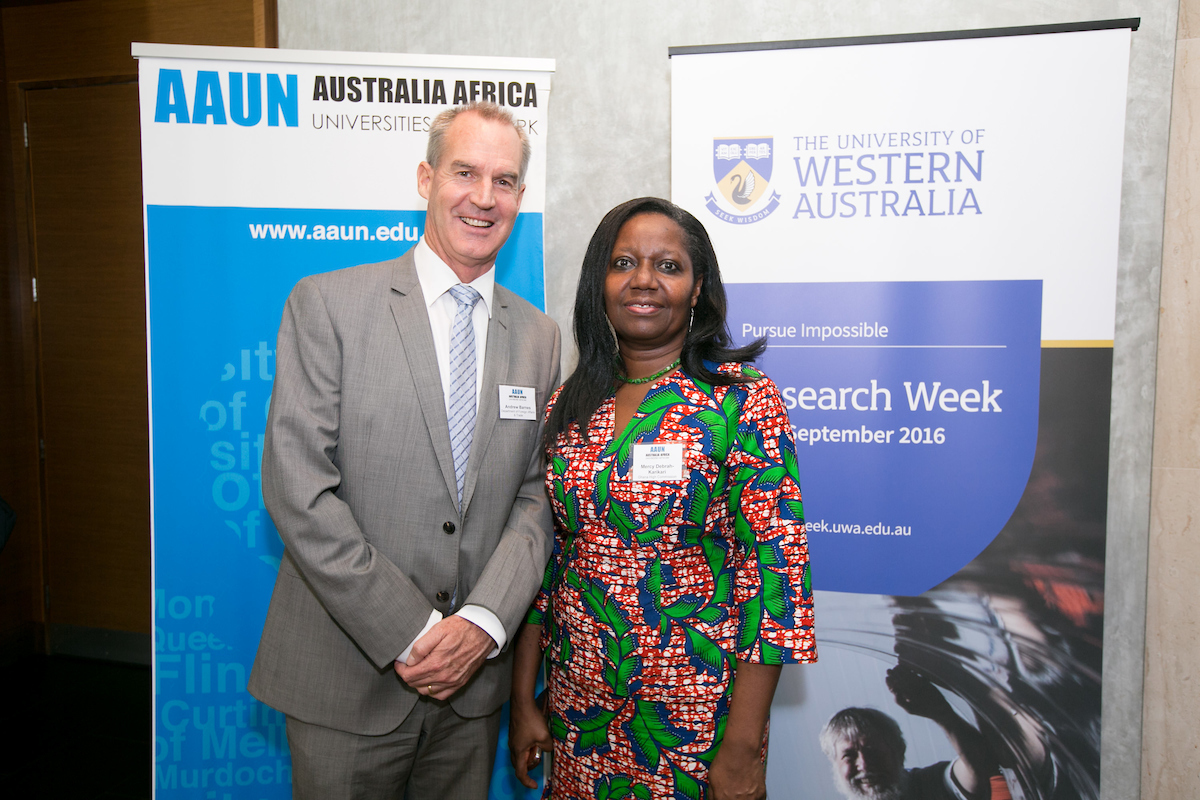Conference Highlights: ACC 2016 Perth

On 5 September 2016, AAUN brought together up to 100 Australian and African expert participants from academia, government, diplomats, business and agencies to assess research and education partnerships with partners and stakeholders, in building sustainable research and exchange programs.
Some of the Highlights
Prof Cheryl de la Rey
Vice-Chancellor and Principal of the University of Pretoria and AAUN co-chair on Sustainable Development Goals (SDGs), The key to successful partnerships, and more.
“The opportunities and challenges for strengthening AAUN Partnerships”
- Match academic strengths and emerging strenghts and capacity as well as institutional, regional and national needs of all partners
- Funding
- Translating research findings into policy outcomes
- Industry involvement
Input from our members and project leaders is essential to the above. Email us your ideas and updates.
Dr John Kirkland
Deputy Secretary General, Association of Commonwealth Universities on Implementing the UN Sustainable Development Goals in higher education and research.
“The world beyond 2015: Is higher education ready?”
Grame Barty
Executive Director, International Operations Group, Austrade on Creating a Competitive Advantage Australia and Africa – The Next 20 Years
“So where is the best Australia and Africa ‘shared’ Education competitive advantage?”
- Capturing: Africa’s mobile internet and matching it with online learning and skilling delivery
- Using: Australia’s world leading educational framework, creativity and digital connectivity
- For: Access to 200 million young Africans by 2050
Dr Peter Johnston
Climate scientist at the University of Cape Town on Making Useful Climate information Available for ALL
Climate-related disasters (including droughts, floods and storms) are among the main drivers of food insecurity
“Climate data/information…. What is the story?” Do we [researchers] tell it right?
Peter Johnston is one of the Principal Investigators (working with Prof Janet Bornman, Curtin University & Prof Richard Warrick, Curtin University) for the AAUN funded project Agro-diverse farming systems in Africa: potential for improving food (and nutritional) security in the context of climate variability and change (page 5 of the Annual Report). AAUN partners in this project are the University of Ibadan, the University of Pretoria, and the University of Western Australia.
Check out the AAUN members page to find optional partners for your Africa related project.
Prof Petra Tschakert
Professor Earth and Environment, School of Earth and Environment, The University of Western Australia on Climate change and SDG performances per country. How does your country score on the SDG performance Index?
Click the GIF below to see global temperature change since 1850:
Prof Kadambot Siddique
Hackett Professor of Agriculture Chair and Director The UWA Institute of Agriculture on Pulses: solutions to human health and cropping systems sustainability
“Pulses are climate smart crops with less water requirements.”
Prof Siddique co-authored a recent publication in Nature Plants.
Prof Romeela Mohee
“Areas of Intervention The Mauritian-African Context: ICT, Ocean Economy, Tourism.”
Dr Eric Huttner
Australian Centre for International Agricultural Research on Australia Africa Priorities in research and innovation for sustainable development.
“Developing value chain innovation platforms to improve food security in East and Southern Africa -VIP4FS (ACIAR) 2015-2019”
Opening speeches:
Mr Matthew Neuhaus, Head Africa Branch DFAT:
Beyond mining, education is the next important part of our economic engagement – let alone so many other aspects of that engagement. This will be a growing partnership. From the government side, we will continue to contribute through the Australia Awards Scholarship program. Another exciting development is a pilot post-doctoral fellowships.[applications will open soon – keep an eye on this website]
Audience AAUN Forum 2016, Perth
H.E. Mr Adam McCarthy, High Commissioner of Australia to South Africa:
Both Australia and South Africa have world-class higher education institutions, and we face many of the same challenges. Not only do we have the same drought problem – we have the same droughts.The opportunities to work together to address problems via our institutions are tremendous. It’s not only about the research; a lot can be exchanged about the act of being universities. I’m struck by the role of VCs in South Africa in leading the public debate on social issues – Australia can learn from this. Vice versa, South Africa can learn from Australian funding models.
H.E. Mrs Mercy Debrah-Karikari, High Commissioner Ghana High Commission:
The focus of this year’s Forum on the SDGs is a most welcome one, considering the importance of those goals both for addressing the major concerns of Africa and advancing the global development agenda. Africa is the continent endowed with considerable resources, a huge percentage of which remains untapped. With a population projected to reach two billion by 2050, it has some of the fastest growing economies….
And yet, the continent continues to struggle in its development efforts – a situation which highlights the imperative for strong partnerships around the world to advance our objectives. Partnerships that build on the strengths of the parties for the attainment of mutually beneficial goals. In the search for partnerships, we are aware of Australia’s interest in the security, stability and prosperity of Africa and note that, among others, it provides assistance in various areas, including in education and human capacity development. Complete speech
H.E. Mrs Mercy Debrah-Karikari, High Commissioner Ghana High Commission & Mr Andrew Barnes, Australia’s High Commissioner to Ghana

